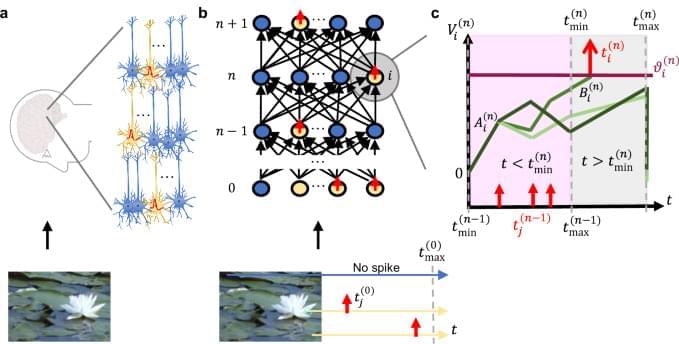You don’t need 0s and 1s to perform computations, and in some cases it’s better to avoid them.




Microwaves in homes, offices and laboratories have been found to host diverse microbiomes, highlighting the importance of regular cleaning.

In the search for less energy-hungry artificial intelligence, some scientists are exploring living computers.
Artificial intelligence systems, even those as sophisticated as ChatGPT, depend on the same silicon-based hardware that has been the bedrock of computing since the 1950s. But what if computers could be molded from living biological matter? Some researchers in academia and the commercial sector, wary of AI’s ballooning demands for data storage and energy, are focusing on a growing field known as biocomputing. This approach uses synthetic biology, such as miniature clusters of lab-grown cells called organoids, to create computer architecture. Biocomputing pioneers include Swiss company FinalSpark, which earlier this year debuted its “Neuroplatform”—a computer platform powered by human-brain organoids—that scientists can rent over the Internet for $500 a month.
More than one singularity.
The singularity could soon be upon us. The PESTLE framework, developed by this episode’s guest Daniel Hulme, expresses not one but six types of singularity that could occur: political, environmental, social, technological, legal and economic. @JonKrohnLearns and Daniel Hulme discuss how each of these singularities could bring good to the world, aligning with human interests and pushing forward progress. They also talk about neuromorphic computing, machine consciousness, and applying AI at work.
Watch the full interview “807: Superintelligence and the Six Singularities — with Dr. Daniel Hulme” here: https://www.superdatascience.com/807



Tesla is trying something new. The automaker is offering a bundle of 3 years of subscription to Full Self-Driving (FSD) Supervised, Supercharging, and premium connectivity.
Tesla has been having issues selling its FSD package.
For years, CEO Elon Musk claimed that Tesla would keep increasing prices as the system got better, which he claims would then make Tesla vehicles “appreciation assets”

Microalgae such as the diatom Odontella aurita and the green alga Tetraselmis striata are especially suitable as “biofactories” for the production of sustainable materials for 3D laser printing due to their high content in lipids and photoactive pigments. An international research team led by Prof. Dr Eva Blasco, a scientist at the Institute for Molecular Systems Engineering and Advanced Materials (IMSEAM) of Heidelberg University, has succeeded for the first time in manufacturing inks for printing complex biocompatible 3D microstructures from the raw materials extracted from the microalgae. The microalgae-based materials could be used in future as the basis for implants or scaffolds for 3D cell cultures.
The research has been published in Advanced Materials (“Printing Green: Microalgae-Based Materials for 3D Printing with Light”).
A new ink system, based on the microalgae Odontella aurita and Tetraselmis striata, enables the manufacturing of complex 3D microstructures with high quality and precision. (Image: Clara Vazquez-Martel)

New observations reveal neutron stars paired with stars like our Sun. Astronomers have uncovered what appear to be 21 neutron stars in orbit around stars like our Sun. The discovery is surprising because it is not clear how a star that exploded winds up next to a star like our Sun.
Most stars in our universe come in pairs. While our own Sun is a loner, many stars like our Sun orbit similar stars, while a host of other exotic pairings between stars and cosmic orbs pepper the universe. Black holes, for example, are often found orbiting each other. One pairing that has proved to be quite rare is that between a Sun-like star and a type of dead star called a neutron star.
Now, astronomers led by Caltech’s Kareem El-Badry have uncovered what appear to be 21 neutron stars in orbit around stars like our Sun. Neutron stars are dense burned-out cores of massive stars that exploded. On their own, they are extremely faint and usually cannot be detected directly. But as a neutron star orbits around a Sun-like star, it tugs on its companion, causing the star to shift back and forth in the sky. Using the European Space Agency’s Gaia mission, the astronomers were able to catch these telltale wobbles to reveal a new population of dark neutron stars.